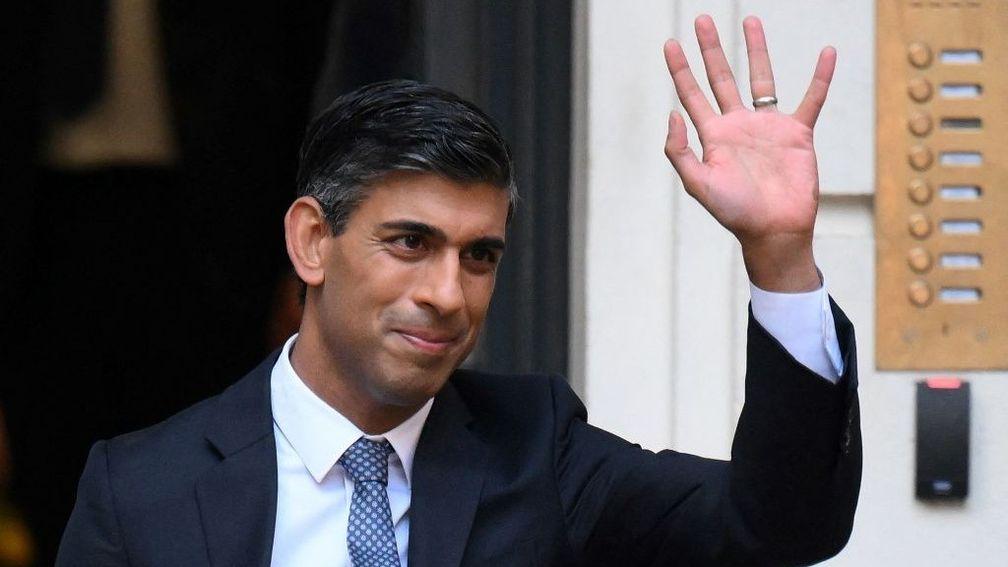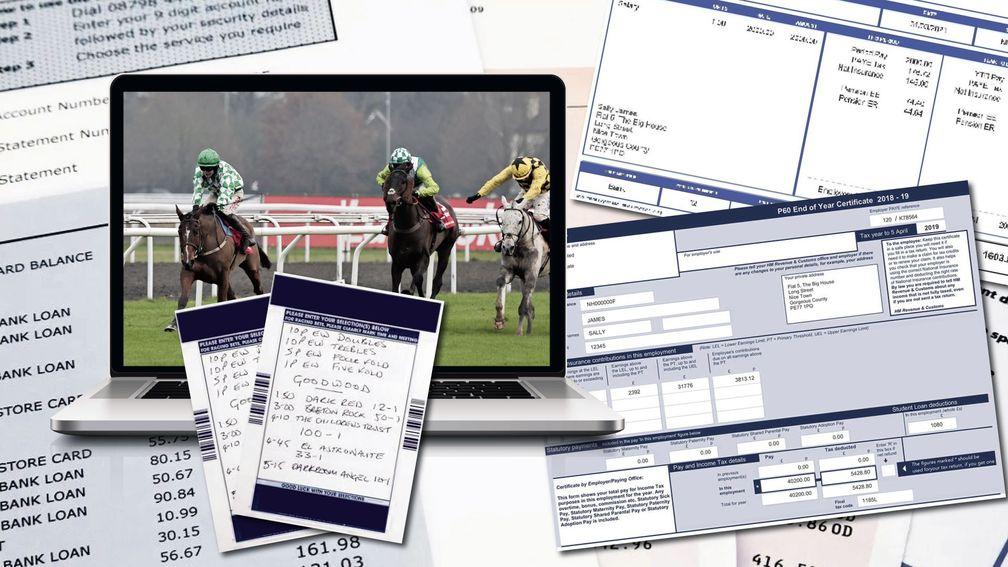We asked the government and Gambling Commission a straight question – we did not get a straight answer

This will not come as a shock revelation, but those who frequent the world of politics are not necessarily renowned for always giving straight answers to straight questions.
Consider, for example, Rishi Sunak's announcement that the northern leg of the HS2 high-speed railway will be scrapped. Some will celebrate the decision, others will lament it. Where there might be agreement is in a sense of frustration about how the announcement was handled.
On Tuesday morning in Manchester, on the eve of his Conservative conference speech in which the news was formally broken, the United Kingdom's prime minister insisted no decision had been made. Those who questioned Sunak during a round of television interviews seemed certain a decision had been taken, while it then transpired Sunak had seemingly filmed a social media video in Downing Street explaining the policy reversal before arriving in Manchester.
Representatives of British racing will presumably have been relieved there was no reference to the government's gambling white paper when Sunak addressed his party conference. Perhaps even more significantly, Lucy Frazer, the secretary of state for culture, media and sport, said nothing about the white paper in her Manchester speech. Given this was probably the last Conservative conference before the next general election, it would not have been a huge surprise had Frazer played to those galleries pushing for tighter restrictions to be placed on bookmakers and those who bet with them.
It is hoped that at some point during conference week, Frazer found time to read the Racing Post's three-part Affordability Files series that examined key white paper claims. If so, she will have been left in no doubt why punters are so angry and why anyone who loves British racing is deeply concerned.

There is absolutely no reason to doubt the sincerity of anyone in government who claims they do not want to damage a sport with which Sunak is directly connected as the member of parliament for a constituency that includes the Middleham training centre and Catterick racecourse. Indeed, the prime minister referenced both in a video message played during the Thoroughbred Industry Employee Awards eight months ago. "I want to see British racing and breeding stay at the front of this global race in the years ahead," Sunak told an audience that was heartened by his words. It was a strong and encouraging statement.
The problem is actions speak louder than words, even when the consequences of those actions are wholly unintended. That is plainly true of the white paper and its proposal to formalise the affordability checks that for over two years have angered countless punters and done significant financial damage to racing.
The white paper estimates that just three per cent of accounts will be affected by the enhanced level of affordability checks that will be triggered when an individual experiences a net loss of £2,000 in 90 days or £1,000 in 24 hours. The three per cent figure was based on a data set of accounts whose users gambled at least once across a 12-month period. The data, requested by the Gambling Commission, will accordingly incorporate many who do just bet once a year, which in turn means the percentage of regular punters – and crucially regular racing punters – who are set to be caught up in enhanced checks is bound to be greater than three per cent.
Fitzdares chief executive William Woodhams told the Racing Post he expects 80 per cent of his customers will trigger checks. That number is eyecatchingly high due to the nature of the Fitzdares client base, yet across the industry as a whole Woodhams believes 20-40 per cent of active racing punters will be asked to undergo checks.
That represented an ominous warning, yet nobody can know for sure what the actual number will prove to be. Where a definitive answer should be easily attainable is with regards to how the three per cent figure was reached.
The white paper explains that the data used for projections showed that during the monitored period 3.2 per cent of accounts hit the £2,000 in 90 days threshold, while 2.0 per cent spent £1,000 in 24 hours. One would expect there to be some crossover between the two cohorts, yet even in the highly improbable scenario of total crossover, the bare minimum figure would be 3.2. How, then, does 3.2 plus 2.0 equal 3.0?
First, we asked the Gambling Commission. A spokesperson said: "DCMS fed in the information from the commission's data request, and made further assessments in consideration of additional datasets and further information about the proposals. This led them to estimate the three per cent set out in the white paper. If you wish to know further about the estimates in annex A of the white paper, we recommend you approach DCMS."

We therefore approached the DCMS. A spokesperson said: "We estimate only about three per cent of the highest spending accounts will have more detailed financial risk checks for signs of gambling harm, similar to those done when people buy clothes or other products on credit.
"This estimate is calculated from the data of nearly six million online gambling accounts. We took into consideration the likely overlap between accounts that hit both the £1,000 in 24 hours financial risk check threshold, and the £2,000 in 90 days threshold."
Once again, it was an answer that did not answer the question – and not just any question but one that has been central to the white paper and its communications strategy. It matters because the plans put forward by the government and Gambling Commission are potentially seismic. They will negatively impact lives and businesses. It is therefore essential they should be built on solid foundations that can be explained by their proponents unambiguously and with confidence.
Based on what we have heard from the government and Gambling Commission, that does not appear to be the case.
The Affordability Files:
'The elephant in the room' - are frictionless affordability checks a flight of fantasy?
How the white paper miscalculated the impact of affordability checks on racing

Subscribe to Racing Post Members' Club Ultimate Monthly and get 50% off your first three months!
Available to new subscribers purchasing Members' Club Ultimate Monthly using code WELCOME2023. First three payments will be charged at £19.98, subscription renews at full monthly price thereafter. To cancel please contact us at least seven days before subscription is due to renew.
Published on inLee Mottershead
Last updated
- Racing's failure to promote Premier racedays is embarrassing - and underlines why help from bookmakers is needed
- JP McManus was right to raise the subject of transparency - and here's my solution to his worry about weights
- No-one has ever emerged from the womb wearing a trilby - racing's future survival hangs on pursuing a young audience
- Restrictions and the black market: surely the time has come for bookmakers to confront the link between them
- Plummeting betting turnover leaves British racing in a precarious state - whatever the sales numbers might suggest
- Racing's failure to promote Premier racedays is embarrassing - and underlines why help from bookmakers is needed
- JP McManus was right to raise the subject of transparency - and here's my solution to his worry about weights
- No-one has ever emerged from the womb wearing a trilby - racing's future survival hangs on pursuing a young audience
- Restrictions and the black market: surely the time has come for bookmakers to confront the link between them
- Plummeting betting turnover leaves British racing in a precarious state - whatever the sales numbers might suggest
